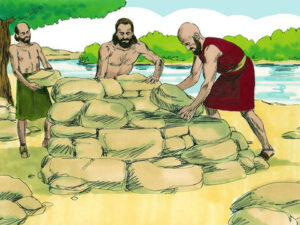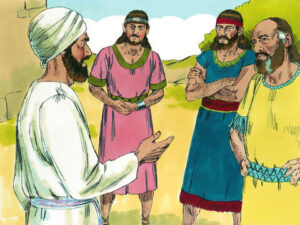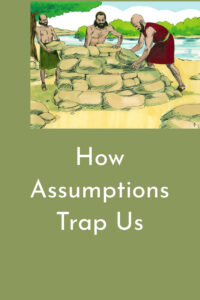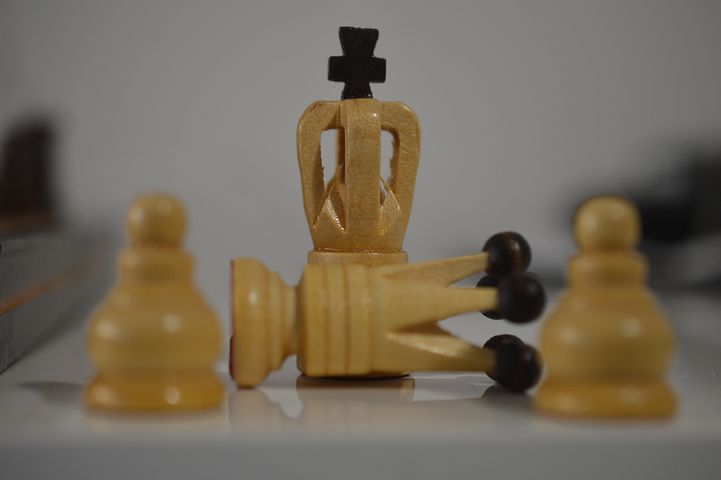How Assumptions Trap Us
Assumptions
 In our haste to make certain others are living as they should, we often fail to understand the entire story. We make judgments based on things we “heard” instead of getting facts ourselves. We ask other people instead of asking direct questions to those who truly know. In addition, we make assumptions based on our prejudices against people.To our detriment, we pass on information that is inaccurate and unfair. The nail is in the coffin before a fair trial occurs.
In our haste to make certain others are living as they should, we often fail to understand the entire story. We make judgments based on things we “heard” instead of getting facts ourselves. We ask other people instead of asking direct questions to those who truly know. In addition, we make assumptions based on our prejudices against people.To our detriment, we pass on information that is inaccurate and unfair. The nail is in the coffin before a fair trial occurs.
This problem is inherent because we are imperfect people. There are daily examples all around us. Likewise, we find examples in scripture that show our human nature. A perfect example is found among the tribes of Israel after Canaan was conquered and they settled in their land. You can read the story in Joshua 22.
 When the tribes made wrong assumptions
When the tribes made wrong assumptions
Following the conquest of Canaan by the Israelites, the tribes are dispatched to go to their own land and homes. Joshua divvies out the land to each tribe as pre-arranged during Moses’ leadership.
While Moses was still alive, the tribes of Reuben and Gad and the half-tribe of Manasseh asked for land on the other side of the Jordan. They were granted this request on the condition they would help their fellow tribes conquer the land they were to inhabit. The agreement was made. The families of those tribes remained on the other side of the Jordan while their men joined the remaining tribes to continue the conquest of the promised land.
Together, the Israelites crossed the Jordan river and conquered the remaining land. As their leader, Joshua divided the land and assigned the remaining tribes their possession. Each tribe settled into their new land and community. The tribes of Reuben, Gad, and the half-tribe of Manasseh returned to their wives and children and settled in Gilead.
 Shortly thereafter, the leaders in Gilead built an altar by the Jordan – an altar “of imposing size”.
Shortly thereafter, the leaders in Gilead built an altar by the Jordan – an altar “of imposing size”.
When the other tribes heard about this altar, they got together to make war against their brothers. They chose one man from each tribe and sent them to Phineas, the son of Eleazar the priest.
Upon meeting together with their brothers from the other side of the Jordan these men accused the them, based on their assumptions. They didn’t ask any questions first. They didn’t give their brethren opportunity to explain how and why they had built the altar. They chose to assume they knew and accused their fellow Israelites of ill motives.
They accused when they said: You breached faith against God by turning away from God. Your built an altar to yourselves. Now you are in rebellion against God.
 The explanation of the altar
The explanation of the altar
The men from the tribes of Reuben, Gad, and the half-tribe of Manasseh responded to the accusation. Instead of taking up arms to fight these false accusers, they explained why they built the altar.
We did this from fear so that our children will not stop worshipping God. This altar is a witness between us and you so that your children will not say to our children, ‘You don’t have any portion in the Lord.’ In time to come, people will see the copy of the altar of the Lord as a witness between us and you.
Returning home with truth
Phineas and the leaders from the ten tribes of Israel returned home to their people. They explained the true meaning of the altar. There was no desire to make war afterall.
Often when we learn the truth, there is no need to “make war” with others. Too often, we make assumptions based on limited knowledge. We obtain information from folks who want to harm instead of heal.
What a lesson to us! Get the true story before you declare war. Listen to others first instead of last. Don’t make accusations based on assumptions and evil intent from others. Ask for an explanation instead of jumping in with an accusation.
Ask questions to learn, not to accuse. Find the truth from the folks who truly know. Finally, go back home and tell the truth instead of spreading gossip.
The people of Reuben and Gad called the altar “Witness”. They said, “It is a witness between us that the Lord is God.”
Let’s let our actions and lives show by our witness that the Lord is God. Asking the right questions instead of making assumptions and accusing is the right way to learn truth. Truth sets us free.

Photo credits: pixabay.com; freebibleimages.org with Sweet Publishing





